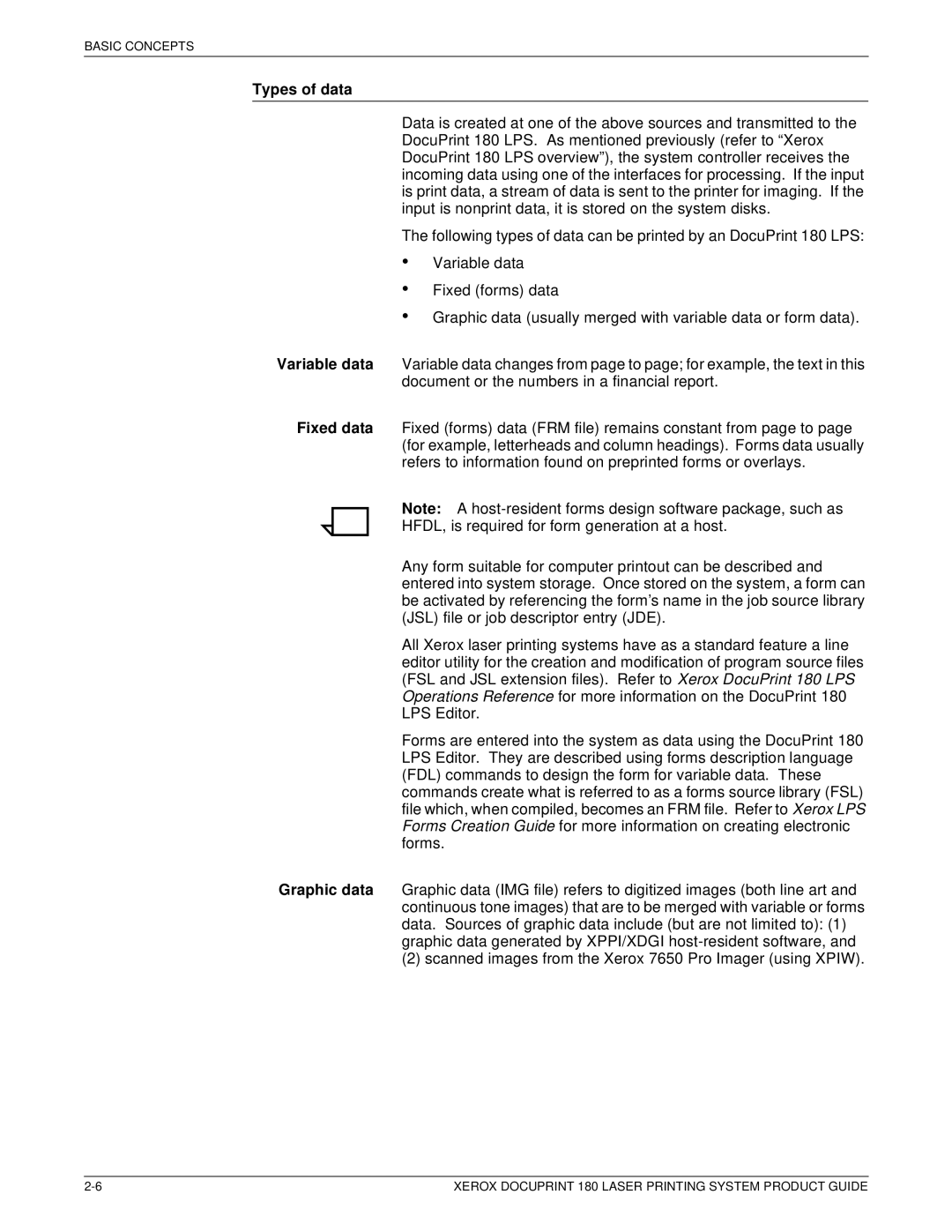
BASIC CONCEPTS
Types of data
Data is created at one of the above sources and transmitted to the DocuPrint 180 LPS. As mentioned previously (refer to “Xerox DocuPrint 180 LPS overview”), the system controller receives the incoming data using one of the interfaces for processing. If the input is print data, a stream of data is sent to the printer for imaging. If the input is nonprint data, it is stored on the system disks.
The following types of data can be printed by an DocuPrint 180 LPS:
•
•
•
Variable data
Fixed (forms) data
Graphic data (usually merged with variable data or form data).
Variable data Variable data changes from page to page; for example, the text in this document or the numbers in a financial report.
Fixed data Fixed (forms) data (FRM file) remains constant from page to page (for example, letterheads and column headings). Forms data usually refers to information found on preprinted forms or overlays.
Note: A
HFDL, is required for form generation at a host.
Any form suitable for computer printout can be described and entered into system storage. Once stored on the system, a form can be activated by referencing the form’s name in the job source library (JSL) file or job descriptor entry (JDE).
All Xerox laser printing systems have as a standard feature a line editor utility for the creation and modification of program source files (FSL and JSL extension files). Refer to Xerox DocuPrint 180 LPS Operations Reference for more information on the DocuPrint 180 LPS Editor.
Forms are entered into the system as data using the DocuPrint 180 LPS Editor. They are described using forms description language (FDL) commands to design the form for variable data. These commands create what is referred to as a forms source library (FSL) file which, when compiled, becomes an FRM file. Refer to Xerox LPS Forms Creation Guide for more information on creating electronic forms.
Graphic data Graphic data (IMG file) refers to digitized images (both line art and continuous tone images) that are to be merged with variable or forms data. Sources of graphic data include (but are not limited to): (1) graphic data generated by XPPI/XDGI
(2) scanned images from the Xerox 7650 Pro Imager (using XPIW).
XEROX DOCUPRINT 180 LASER PRINTING SYSTEM PRODUCT GUIDE |
